When it comes to managing your business finances, choosing the right accounting software is crucial. With so many options available, it can be overwhelming to determine which one is best suited for your needs. In this blog post, we will dive into the battle of FreshBooks vs QuickBooks – two popular accounting solutions that have been dominating the market. Whether you're a small business owner or a freelancer looking to streamline your financial tasks, read on as we compare these platforms and help you make an informed decision. So buckle up and get ready for a head-to-head comparison of FreshBooks vs QuickBooks!
Comparing FreshBooks vs QuickBooks
FreshBooks vs QuickBooks: Two giants in the realm of accounting software, both vying for supremacy. Let's delve into the intricacies of FreshBooks and QuickBooks and see how they stack up against each other. FreshBooks, with its intuitive interface and user-friendly design, aims to simplify bookkeeping tasks for small businesses and self-employed professionals. Its cloud-based platform offers seamless invoicing capabilities that allow users to create professional-looking invoices effortlessly. Moreover, FreshBooks boasts time-tracking features integrated seamlessly with project management tools, making it a breeze to monitor billable hours. On the flip side, we have QuickBooks—renowned as an industry leader in accounting software solutions—with its robust functionalities tailored towards both small business owners and accountants alike. Its comprehensive suite of tools enables users to handle multiple financial aspects such as payroll processing, inventory management, and tax calculations all under one roof. With advanced reporting options and customizable templates for invoices or estimates, QuickBooks provides a level of detail that leaves no stone unturned when it comes to managing finances effectively. Ultimately, whether you opt for FreshBooks or QuickBooks largely depends on your unique needs; however, rest assured knowing that both platforms are designed to streamline your financial processes efficiently while empowering you with valuable insights at every step along the way!
What is QuickBooks?
QuickBooks is a cloud-based accounting software designed for small and medium-sized businesses. It offers a wide range of features to help streamline financial management processes, including invoicing, expense tracking, payroll management, inventory tracking, and more.
One of the key benefits of QuickBooks is its user-friendly interface that makes it easy for business owners and non-accounting professionals to navigate the system. It allows users to create customized invoices with their own logo and branding, track expenses by linking bank accounts or manually entering transactions, generate financial reports for better decision-making, and even calculate taxes automatically.
Another advantage of QuickBooks is its integration capabilities with other business tools such as CRM software or e-commerce platforms. This means you can sync your customer data or sales information seamlessly across different applications.
However, like any software solution, QuickBooks does have some drawbacks. For instance, while the basic version offers essential features at an affordable price point, more advanced functionalities may require upgrading to higher-priced subscription plans. Additionally, some users have reported occasional glitches in the system or difficulties when trying to customize certain aspects of their accounting processes.
Though QuickBooks may not be the perfect solution for everyone, it does offer a comprehensive set of features to help many small and mid-sized businesses manage their finances.
What is FreshBooks?
FreshBooks is a cloud-based accounting software designed specifically for small businesses and self-employed professionals. It offers a range of features that make managing finances easier and more efficient.
With FreshBooks, you can easily create professional-looking invoices and send them to your clients with just a few clicks. The platform also allows you to track your expenses, manage your projects, and keep tabs on your time spent on different tasks.
One of the standout features of FreshBooks is its user-friendly interface. Even if you're not an accounting expert, you'll find it easy to navigate through the various functions and access the information you need. Plus, FreshBooks provides excellent customer support in case you ever run into any issues or have questions about using the software.
Another advantage of FreshBooks is its integration capabilities. You can connect it with other popular business tools such as PayPal, Stripe, and G Suite to streamline your workflows further.
FreshBooks offers a comprehensive solution for small businesses looking for an intuitive accounting software that simplifies financial management processes without compromising on functionality. Give it a try today!
The Pros and Cons of FreshBooks
FreshBooks is a cloud-based accounting software that offers a range of features to help small businesses manage their finances. Like any other software, FreshBooks has its fair share of pros and cons.
One major advantage of using FreshBooks is its user-friendly interface. The platform is intuitive and easy to navigate, making it ideal for users who may not have extensive accounting knowledge. From creating invoices to tracking expenses, FreshBooks simplifies the process with its streamlined design.
Another benefit of FreshBooks is its invoicing capabilities. With customizable templates and automated reminders, sending professional-looking invoices becomes effortless. Plus, clients can conveniently pay online through various payment gateways like PayPal or Stripe.
Time tracking is another standout feature offered by FreshBooks. This feature allows you to track billable hours accurately, making it easier to invoice clients based on the time spent on projects.
However, one drawback of FreshBooks is its limited reporting options compared to other accounting software like QuickBooks. While it provides essential financial reports such as profit and loss statements or expense breakdowns, more advanced reporting features may be lacking for some businesses' needs.
Additionally, while FreshBooks integrates with popular third-party applications such as Shopify or G Suite, the number of integrations available might be less comprehensive than what Quickbooks offers.
The Pros and Cons of QuickBooks
When it comes to accounting software, QuickBooks is a popular choice for businesses of all sizes. Let's take a closer look at the pros and cons of using QuickBooks.
One of the biggest advantages of QuickBooks is its versatility. It offers various versions tailored to specific business needs, whether you're a freelancer or running a large corporation. This flexibility allows you to choose the features that are most relevant to your business and scale up as needed.
QuickBooks also excels in terms of user-friendliness. The interface is intuitive and easy to navigate, making it accessible even for those with limited accounting knowledge. Its robust reporting capabilities provide valuable insights into your financial health, helping you make informed decisions for your business.
Another advantage is the extensive integrations available with other tools and applications commonly used by businesses today. Whether it's syncing with your bank accounts, integrating with CRM systems, or connecting with payment processors, QuickBooks makes it seamless to streamline your financial processes.
However, like any software solution, there are some drawbacks to consider when using Quickbooks. One potential downside is the learning curve associated with more advanced features such as inventory management or project tracking. While the basic functionalities are straightforward enough for beginners, mastering these additional features may require some time investment.
Additionally, cost can be a factor depending on which version you opt for or if you need multiple user access licenses. While there are affordable options available for small businesses starting out, larger organizations may find that the pricing plans become less budget-friendly as their needs grow.
Note,
QuickBooks offers numerous benefits including its versatility across different business types and user-friendly interface; however, users should be aware of potential challenges such as learning curves associated with advanced features and varying costs based on usage requirements.
Which One Is Best?
Which one is best? The ultimate question that arises when comparing FreshBooks vs QuickBooks. Both accounting software options have their own unique features and benefits, making it difficult to determine a clear winner. Let's dive deeper into the strengths of each platform.
FreshBooks shines in its simplicity and user-friendly interface. With its clean design and intuitive navigation, even those with limited accounting knowledge can easily navigate through the software. It offers a range of time-saving features such as automated invoicing, expense tracking, and project management tools. Additionally, FreshBooks has excellent customer support that is available round the clock to assist users with any issues or questions they may have.
On the other hand, QuickBooks is known for its robustness and comprehensive set of features. It provides advanced functionalities like inventory tracking, payroll processing, tax calculations, and financial reporting. QuickBooks also integrates seamlessly with third-party applications such as CRM software or payment gateways, allowing businesses to streamline their operations further.
The best option depends on your specific business needs. If you prioritize simplicity and ease of use while handling basic accounting tasks efficiently, FreshBooks might be the ideal choice for you. However, if you require more advanced features to manage complex financial processes or integrate with other business systems seamlessly, QuickBooks should be considered.
In conclusion (not concluding), both Freshbooks vs Quickbooks are powerful accounting solutions that cater to different types of businesses depending on their requirements. Take some time to evaluate your company's needs before making a decision - this will ensure you choose an option that aligns perfectly with your goals!
Conclusion
The decision between FreshBooks vs QuickBooks comes down to the specific needs and preferences of your business. Both platforms offer a range of features and benefits that can help streamline your financial management processes.
If you value simplicity, user-friendly interface, and excellent customer support, FreshBooks may be the ideal choice for you. It is specifically designed for small businesses and freelancers who prioritize ease-of-use and straightforward invoicing capabilities. With its intuitive design, time tracking functionality, expense tracking tools, and seamless integration with popular payment gateways like PayPal or Stripe, FreshBooks offers a compelling solution for those looking for a hassle-free accounting software.
On the other hand, if you require more advanced features such as robust inventory management or in-depth reporting options, QuickBooks might be better suited to meet your needs. As one of the most established accounting solutions on the market, QuickBooks offers comprehensive financial management tools tailored to various types of businesses. It provides powerful inventory tracking capabilities along with customizable reports that allow you to dive deep into your business's financial performance.
In summary:
- Choose FreshBooks if you value simplicity, user-friendliness, and exceptional customer support.
- Opt for QuickBooks if you need more advanced features like inventory management or extensive reporting options.
Remember to carefully evaluate your business requirements before making a final decision. Take advantage of free trials or demos offered by both platforms to get hands-on experience with their functionalities.
Whether it's managing invoices efficiently or keeping track of expenses accurately—both FreshBooks and Quickbooks are trusted names in the industry that can assist in streamlining your financial processes. So go ahead and choose what suits best!
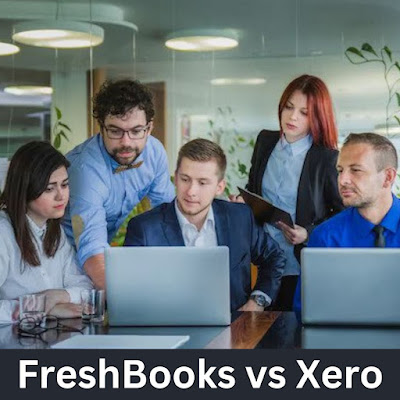
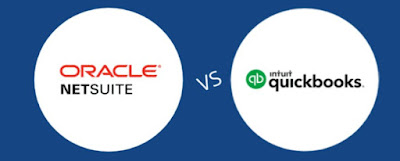
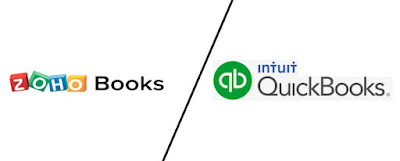
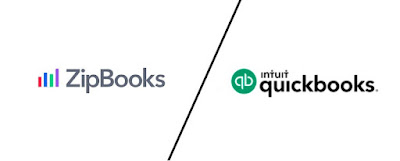

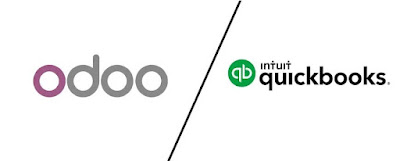
.jpg)
.jpg)


